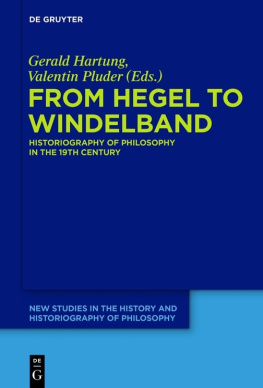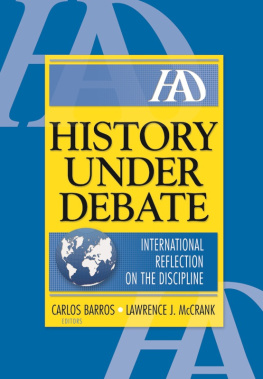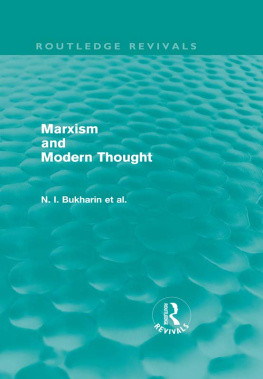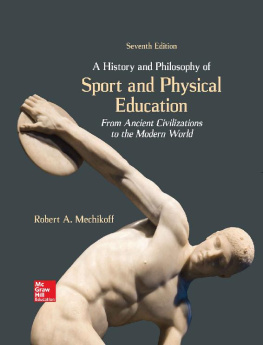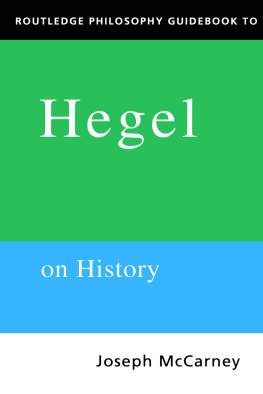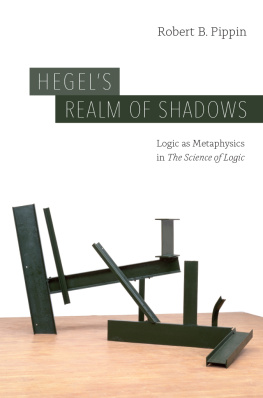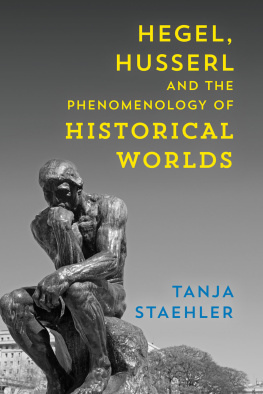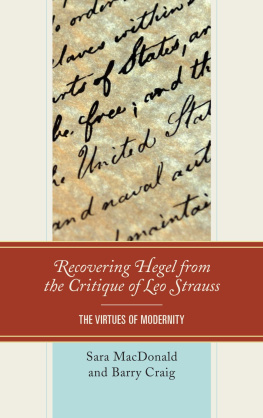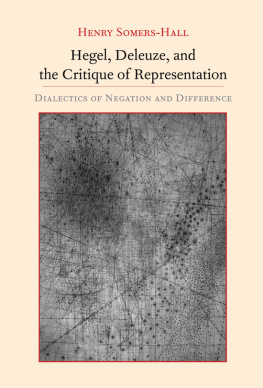Gerald Hartung - From Hegel to Windelband
Here you can read online Gerald Hartung - From Hegel to Windelband full text of the book (entire story) in english for free. Download pdf and epub, get meaning, cover and reviews about this ebook. year: 2015, publisher: De Gruyter, genre: Religion. Description of the work, (preface) as well as reviews are available. Best literature library LitArk.com created for fans of good reading and offers a wide selection of genres:
Romance novel
Science fiction
Adventure
Detective
Science
History
Home and family
Prose
Art
Politics
Computer
Non-fiction
Religion
Business
Children
Humor
Choose a favorite category and find really read worthwhile books. Enjoy immersion in the world of imagination, feel the emotions of the characters or learn something new for yourself, make an fascinating discovery.
- Book:From Hegel to Windelband
- Author:
- Publisher:De Gruyter
- Genre:
- Year:2015
- Rating:5 / 5
- Favourites:Add to favourites
- Your mark:
- 100
- 1
- 2
- 3
- 4
- 5
From Hegel to Windelband: summary, description and annotation
We offer to read an annotation, description, summary or preface (depends on what the author of the book "From Hegel to Windelband" wrote himself). If you haven't found the necessary information about the book — write in the comments, we will try to find it.
From Hegel to Windelband — read online for free the complete book (whole text) full work
Below is the text of the book, divided by pages. System saving the place of the last page read, allows you to conveniently read the book "From Hegel to Windelband" online for free, without having to search again every time where you left off. Put a bookmark, and you can go to the page where you finished reading at any time.
Font size:
Interval:
Bookmark:
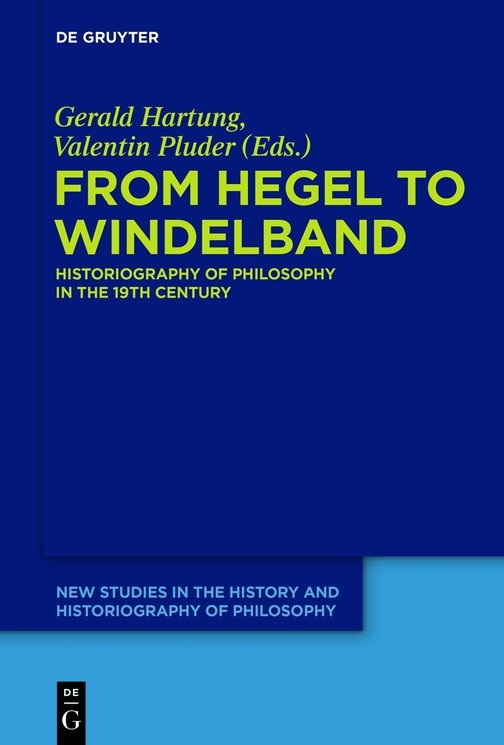
Gerald Hartung, Valentin Pluder
The question what is history and how should it be written? was posed anew in the middle of the 18th century and its answers contrasted with preceding notions of history which had ranged from chronicle to narrative. What is characteristic of this new form of historiography, as Enlightenment historiography, is an understanding of history as linear and causally linked or through its showing the grounds for historys course and development in time. This latter is itself understood as universal-historical progress towards a secular end of history. This historiography grasps the past because its practical effects on the present and the present becomes an expedient transitional stage on the way to the expected future.
This concept of history changes in the 19th century. It is true the developing historicism retains the idea of a completion of history that moves ever forward. However the activity-oriented and didactic impetus of historiography retreats in favour of a striving towards objectivity and impartiality founded on the sources. The general-universal aspect loses its leading significance in this conception of history. The pre-eminent object of such historiography is particular and, in the best case, empirically proven historical data, a focus that leads to almost positivist practices in the middle of the 19th century. Thus freed from the universal-historical claim of the Enlightenment, this tendency to prefer the particular over the general leads to a gradualand of course persistently Euro-centricpluralisation of historiography. A consciousness of its own historicity can be seen within historiography itself and hence an awareness of the relativity of its own statements which up to this point were explicated with objectivity and universality as the goal. At the end of the 19th century this development moves into the centre of reflective discourses not only in philosophy but also within the framework of historiography itself, which adds a further meta-discourse to the already multi-faceted historiography of the 19th century.
The philosophical historiography of the 19th century is embedded within this general development of the conception of history from the Enlightenment to historicism and beyond. However, the investigation of the philosophical-historical texts of the 19th century is not only a concretion of a general conception of history but it is also based on the historical understanding of philosophy as such and to making the understanding of philosophy as historical fruitful. For these texts not only need to exhibit a concept of the temporal succession and development of events, that is, in this case, of intellectual work manifested as transmitted texts. The philosophical-historical texts must also define what exactly qualifies these events and texts to appear in a history of philosophy. Accordingly every history of philosophy not only implies a specific philosophy of historyeven a philosophy of the history of philosophybut it must also include a philosophy of philosophy, at least insofar as it wants to be able to justify its approach.
When looking at the texts of the 19th century in particular it is certainly an advantage that it is not necessary to subsequently extract its conceptual metalevel from its philosophical historiography. Rather, in these texts this subjectmatter is explicitly self-reflective. This is certainly not to say that its statements on the history of philosophy and the conception of history of philosophy that was actually published are in tandem. On the one hand this relation needs to be subjected to a critical analysis and the respective method of the history of philosophy need to be extrapolated. On the other hand it should be noted that the question of the sources of the history of philosophy in the 19th century, a question which includes the analysis of what is accepted as a source in philosophical history, is of equal importance to methodological considerations.
Accordingly when examining the philosophical historiography of the 19th century three interrelated and interlocking approaches or directions of investigation suggest themselves for closer analysis: (1) for one, concrete works and their immanent underlying concepts including their historical location not only in relation to the overall trends of historiography but also with a view to the individual formation of schools and the constellations of protagonists; (2) for another, the explicit reflection of historiography in a genuine philosophical consideration of history, philosophy and the philosophy of history, which does not have to mean that there is a congruence between the proposed conceptual basis of historiography and the way in which it is actually explicated and (3) last but not least the issue of sources of philosophical historiography in the 19th century.
An assessment of the sources of 19th century philosophical historiography obviously rest on the state of current research. Only through this are we able to understand and if necessary to correct historical interpretations in their possible distortedness due to insufficient sources. In the same manner it is equally impossible to consider the questioning of concepts immanent to 19th century philosophical historiography without explicit reference to the diversity that is the basis of todays interpretations of philosophical historiography. That is why the view of the 19th century must be complemented by reflection on the point of view and the position from which it is viewed, from which the past is judged.
These considerations lead once again to the question concerning historiography in general. However historiography is to be questioned not only with regard to its expression in the 19th century but rather in the face of the obvious fact that the investigation of historiography in history too is a form of historiography and thus itself, because of its own historicity, is carried out within the framework of conceptual parameters of the historicity which is to be questioned. The contributions in the present volume elaborate the questions of what philosophical historiography in its classical epoch between Hegel and Windelband, was and what it could be today, through the critical examination of the 19th century authors. Here, then, the question of the appropriate sensitivity to contexts joins the question of historicity. The analysis of the conditions of the production of philosophical-historical texts (13) needs to be complimented by the consideration of appropriate conditions for their reception. With the essays in the present book we also want to face the question of how the history of philosophy should be written to find readers today. Certainly it makes little sense to represent the history of philosophy as a conflict between contradictory theories and systems which has winners and losers. A history of concepts, categories, metaphors, arguments and styles of thinking will be, likewise, of little interest. Rather it is far more likely that a history that enables an insight into the changes in variables of human life-experience and its fundamental assumptions will arouse our interest even today because it shows how philosophical thoughts are anchored in the life-world. The philosophical historians of the 19th and early 20th century determined what was to be considered an episode and fragment, what a genuine problem of life or a basic philosophical problem which expresses a determinate historical situation, and what, transcending this latter, expresses a seemingly timeless claim to validity. While we, writing for our time, will most likely emphasize things differently, it is apparent that the problems that we encounter on this path are not entirely new. Wilhelm Windelband has circumscribed the scope of our volume by having rightly expressed the following thoughts: It is Hegels merit to have consciously understood what philosophy has always been doing. Since then every history of philosophy that does not know how to uncover the intimate vital relation between systems and the cultural interests of their time would seem to us inadequate.
Font size:
Interval:
Bookmark:
Similar books «From Hegel to Windelband»
Look at similar books to From Hegel to Windelband. We have selected literature similar in name and meaning in the hope of providing readers with more options to find new, interesting, not yet read works.
Discussion, reviews of the book From Hegel to Windelband and just readers' own opinions. Leave your comments, write what you think about the work, its meaning or the main characters. Specify what exactly you liked and what you didn't like, and why you think so.

